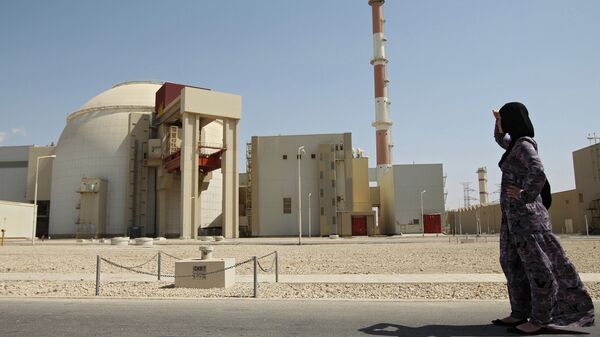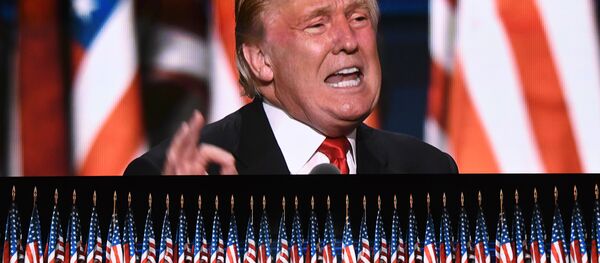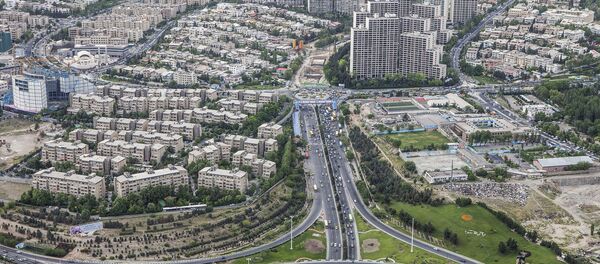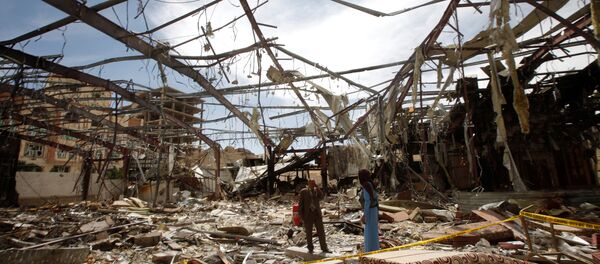The new American president won't be able to abandon the obligations it had agreed to under the nuclear agreement with Iran or annul the deal, Mojtaba Jalalzadeh, an expert in international affairs at Tehran's Azad University, emphasized in an interview with Sputnik Persian.
"The Islamic Republic of Iran's aspirations toward the presidency of the US leader are linked to the Iran nuclear agreement and his commitment to its principles. We believe that the 45th president of the US will not upset the implementation of UN Security Resolution 2231[culminated in the Joint Comprehensive Plan of Action (JCPOA)]," Jalalzadeh told Sputnik.
The 44th American president advocated a moderate and well-balanced policy toward Iran, according to the expert. However, Trump's stance appears to be tougher.
Indeed, during the course of the 2016 presidential campaign Trump has repeatedly called the US-Iran nuclear agreement "one of the worst deals [he has] ever seen."
During his March speech, delivered at the American Israel Public Affairs Committee (AIPAC) conference in Washington, Trump noted that he will try to reconsider "the disastrous deal" if he wins.
"My number one priority is to dismantle the disastrous deal with Iran. I have been in business a long time. I know deal-making. And let me tell you, this deal is catastrophic for America, for Israel and for the whole of the Middle East," he said.
Back in September 2015, then- Republican candidate Trump remarked in his interview on MSNBC's "Morning Joe" show: "We have a horrible contract, but we do have a contract," and stressed that he wasn't going "to tear it up" on day one if he is elected.
"I have all my life — I love to buy bad contracts where… people go bust, and I make those contracts good. This is a perfect example of taking over a bad contract," Trump pointed out, as quoted by The Washington Times.
Commenting on the Iran nuclear deal in his July interview with The Daily Caller News Foundation, Trump's top foreign policy adviser Dr. Walid Phares emphasized that Trump is "not going to get rid of an agreement that has the institutional signature of the United States."
"He is a man of institutions. But he's going to look back on it the institutional way. He's said, so far that he doesn't like this deal and that it was poorly negotiated," Phares explained.
"Once elected, he's going to renegotiate it after talking through it with his advisors." One of the clear possibilities is he will send it back to Congress. The reaction of the Iranian leadership will be the next phase. So he is not going to implement it as is, he is going to revise it after negotiating one on one with Iran or with a series of allies," he suggested.
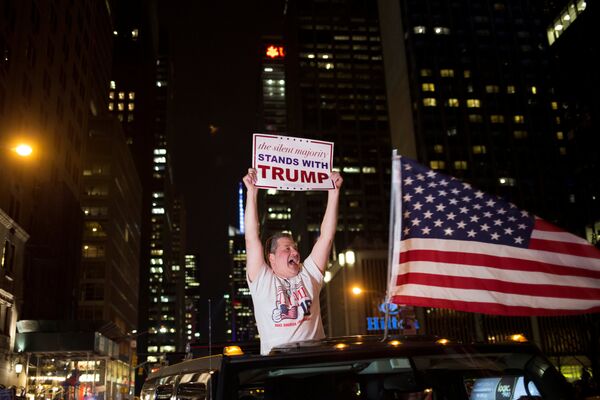
Ahead of the election The Wall Street Journal reported that the then- Democratic presidential nominee was considering exerting further sanctions on Tehran.
Jalalzadeh also drew attention to Clinton's close ties with the House of Saud and the Israeli lobby in the US Congress, suggesting that if elected she would have adopted a more assertive foreign policy toward Iran.
"One should understand that the new president of the US would be able neither to abandon the US' obligations under the Joint Comprehensive Plan of Action (JCPOA) nor to annul it," the Iranian expert underscored.
He highlighted that Tehran's foreign policy doctrine is clear and transparent and that the Islamic Republic is seeking mutually beneficial cooperation with foreign powers, including the United States.
"Iran has proven to be a trustworthy partner," Jalalzadeh stressed.
